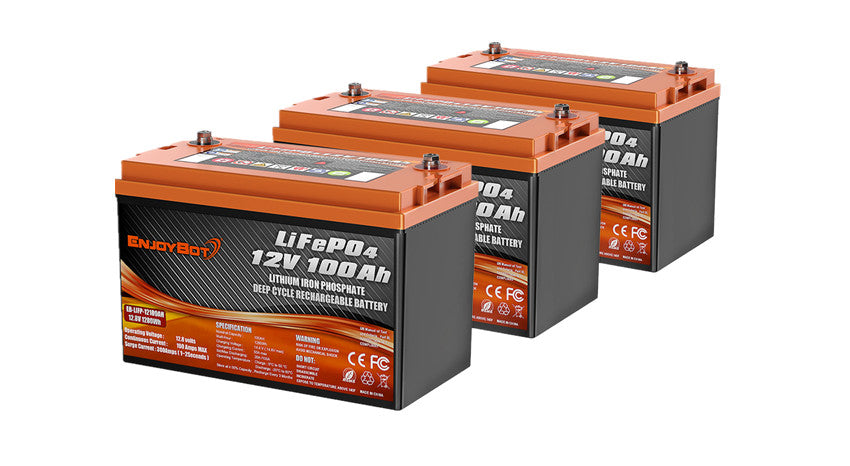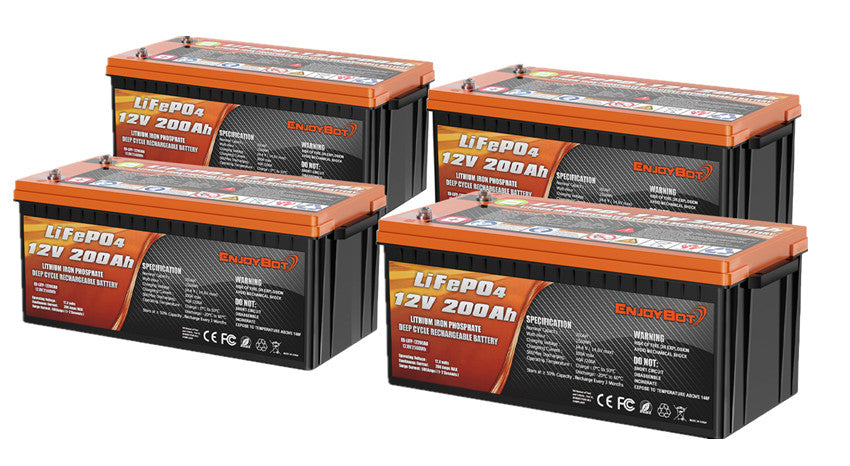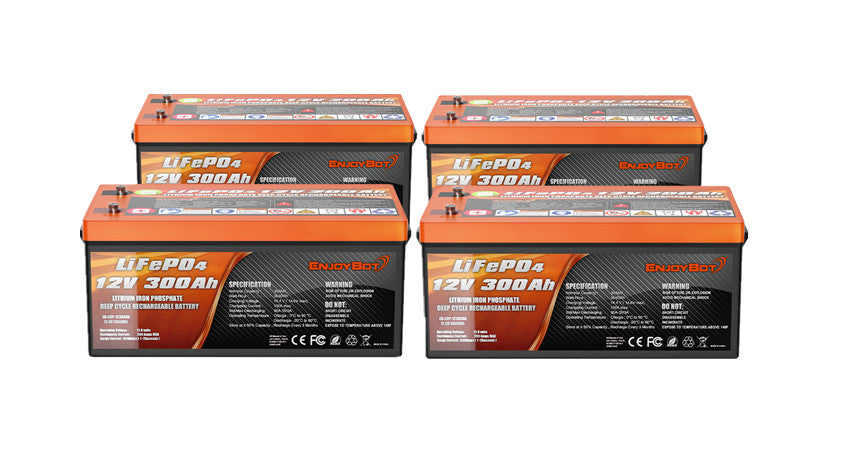What Is A Lithium-Ion Battery?
What Is A Lithium-Ion Battery?
Lithium-ion batteries provide many advantages to upgraders. Everyone wants longer working time, and the longest-lasting and fastest-charging battery available. There has achieved incredible growth in the lithium-ion battery industry globally, and consumers are the benefactors. In this article, we will look at what lithium-ion batteries are and how this new battery technology can benefit you.
What Is A Lithium-Ion Battery?
The lithium-ion battery stores power energy and use lithium ions to generate an electrical potential between the positive and negative terminals of the battery. This battery is one of the newest battery technology available and is currently the most expensive. However, it has the highest storage capacity, longest working time, longest lifespan, and fastest charging time compared to other battery types. Additionally, lithium batteries are the battery of choice in most applications, and along with various other benefits.
How do lithium-ion batteries work?
The Lithium-ion battery contains multiple individual battery cells wired together along with a battery management system (BMS). The BMS helps balance the charge across cells and monitors batteries' health and temperature to ensure optimal performance and lifespan. Each battery cell consists of four main components: the cathode, the anode, an electrolyte, and a separator.
While lithium-ion batteries discharge, lithium ions move through the electrolyte and pass through the separator from the positive terminal (cathode) to the negative terminal (anode). While lithium batteries charge, this process is reversed. The flow of lithium ions generates an electrical potential known as Voltage. The separator allows the lithium ions to move through but blocks electrons, forcing them to pass through your electronics and providing them the power to run.
Types of Lithium-Ion Batteries
There are many types of lithium-ion batteries available, each is named for its active materials and chemical composition. Different types of lithium batteries are excellent in various applications and all have advantages and disadvantages.
For example, lithium iron phosphate (LiFePO4) batteries are popular for replacing 12-volt lead-acid batteries today. Lithium iron phosphate (LiFePO4) batteries have excellent chemical and thermal stability, which makes them safest for rugged applications. In addition, they have a longer working time, a longer life cycle, and a high current rating. We use this chemistry in our Enjoybot Lithium Batteries.
Another type that you will commonly see is lithium cobalt oxide (LiCoO2). You will often find this type of battery in consumer electronics devices such as DSLR cameras, cell phones, tablets, and even laptops. Compared with LiFePO4, LiCoO2 is less stable and has a shorter lifespan, but it can pack a big punch due to its high energy density.
Lithium manganese oxide (LiMn2O4) is also commonly seen in lithium-ion battery-powered equipment. The chemistry of LMO batteries allows for a high current flow and fast charging, but has a shorter lifespan. You will often see this battery type in power tools, medical tools, or even some electric vehicles.
What are the advantages of using lithium-iron phosphate batteries?
There is a long list of benefits to using lithium-iron phosphate (LiFePO4) batteries. Let’s look at a few reasons why many manufacturers and consumers choose to use this battery type.
One of the most significant benefits is a long lifespan. When you choose a lithium-iron phosphate (LiFePO4) battery, you can generally expect a 3 to 5 times longer life expectancy than any other battery on the market today. While lithium batteries are more expensive than their counterparts, they are more cost-effective when you consider the increase in charge cycles.
Most batteries struggle in high and low temperatures. However, some lithium-ion batteries are able to handle extreme temperatures. For example, lithium iron phosphate (LiFePO4) batteries can operate close to their capacity at temperatures ranging from -4 degrees Fahrenheit to 140 degrees Fahrenheit. This durability makes lithium-ion batteries ideal for use in a variety of conditions where other batteries may suffer or experience permanent damage. Additionally, when you choose lithium-ion batteries, you can shed a considerable amount of weight. Consumers want products such as mobile phones, laptops, and tablets to be thinner and lighter. Lithium-ion batteries are the perfect option because of their higher energy density. For instance, A 12-volt lithium iron phosphate battery weighs about half of what is comparable to a lead-acid battery weigh.
Where Can You Use Lithium-Ion Batteries?
The lithium-ion battery is becoming the gold standard in applications ranging from household electronics to electric vehicles. Let’s take a closer look at some of these applications.
Home battery backup.
if you are living in an area that experiences frequent blackouts. Your battery backup will power your entire homes such as lights lighting, your phones charged, tablet, air conditioner, refrigerator, and kitchen appliances.
In the past, the fuel-powered standby generator has dominated the backup power supply market, but reports on the risk of carbon monoxide poisoning have led many people to look forward to alternatives. Lithium-ion batteries have emerged as a more eco-friendly and potentially safer option than traditional generators. This means you get the benefit of reliable instant electricity without the noise and air pollution that comes with gas-guzzling generators. Many companies also have backup power system supplies for use in emergency power outages.
Electric Cars
As our society works towards limiting pollution and becoming more greener, there has been an incredible increase in electric cars. Lithium-ion batteries are perfect for electric vehicles because of their weight and high energy density. The lighter the vehicle, the less force will be required to propel it forward. The lithium nickel manganese cobalt oxide (NMC) battery is currently the preferred chemistry type of electric vehicle battery by most manufacturers. Additionally, we anticipate seeing more advancements in lifespan, capacity, and performance from lithium-ion batteries in electric cars.

RVs
When you purchase an RV, it will probably come with conventional lead-acid batteries. However, many RVers are beginning to realize the significant benefits of upgrading to lithium iron phosphate (LiFePO4) batteries.
One of the key benefits of LiFePO4 batteries is that you can build them in a voltage comparable to existing lead-acid batteries as a replacement. They are also suitable for deep discharges without leading to damage. Conversely, draining a lead-acid battery below fifty percent of its capacity will cause significant harm. In addition, lithium iron phosphate (LiFePO4) batteries weigh about half of what lead-acid batteries do, they charge much faster, and last 3-5 times longer than lead-acid batteries. All of these advantages help justify the increased cost of making the upgrade in RV applications.
Motor Boats & Sailboats
Lithium batteries are becoming a popular option amongst boaters for many of the same reasons they are popular with RVers. Long-lasting and lightweight LiFePO4 batteries are a perfect upgrade for every boating application. Anglers love them for their trolling motors as much as people living on their sailboats love them for powering their appliances and electronics.
Off-Grid Living
Generating your own electricity is essential if you are planning to live off the grid. However, storing the power energy you generate is equally critical. Such as RVers and boaters, those living off the grid see the same benefits of installing LiFePO4 batteries. Lightweight and high-capacity LiFePO4 batteries that last a long time are the optimal choice for building an off-grid battery bank.

How Long Do Lithium-ion Batteries Last?
The lithium-ion battery's lifespan is depending on the type of lithium-ion battery. For example, the lithium manganese oxide (LMO) battery lasts between 300-700 charge cycles on the low end. However, the lithium iron phosphate (LiFePO4) battery lasts between 3,000-5,000 charge cycles.
Generally, the lithium-ion battery provides a longer lifespan than its counterparts. As a result, it is common to see manufacturers standing behind their batteries with extended warranties. For instance, we design our Enjoybot LiFePO4 batteries to last 3,000-5,000 cycles and back them up with a 10-year warranty.
Conclusion
Lithium-ion batteries supply power for the lives of millions of people each day. From home battery backup, boats, golf carts, and solar systems, this technology is growing in popularity due to its lightweight, high energy density, and ability to recharge. Lithium-ion batteries will keep going to grow and evolving as technologies improve in the future. Consumers benefit from these advancements.



















![[Upgraded Version] Enjoybot 14.6V 20A Waterproof Mountable LiFePO4 Lithium Battery Charger For 12V LiFePO4 Battery](http://enjoybot.com/cdn/shop/files/14.6V_20A_Waterproof_Battery_Charger_1_360x.jpg?v=1752565609)
![[Upgraded Version] Enjoybot 14.6V 20A Waterproof Mountable LiFePO4 Lithium Battery Charger For 12V LiFePO4 Battery](http://enjoybot.com/cdn/shop/files/14.6V_20A_Waterproof_Battery_Charger_2_360x.jpg?v=1752637374)















